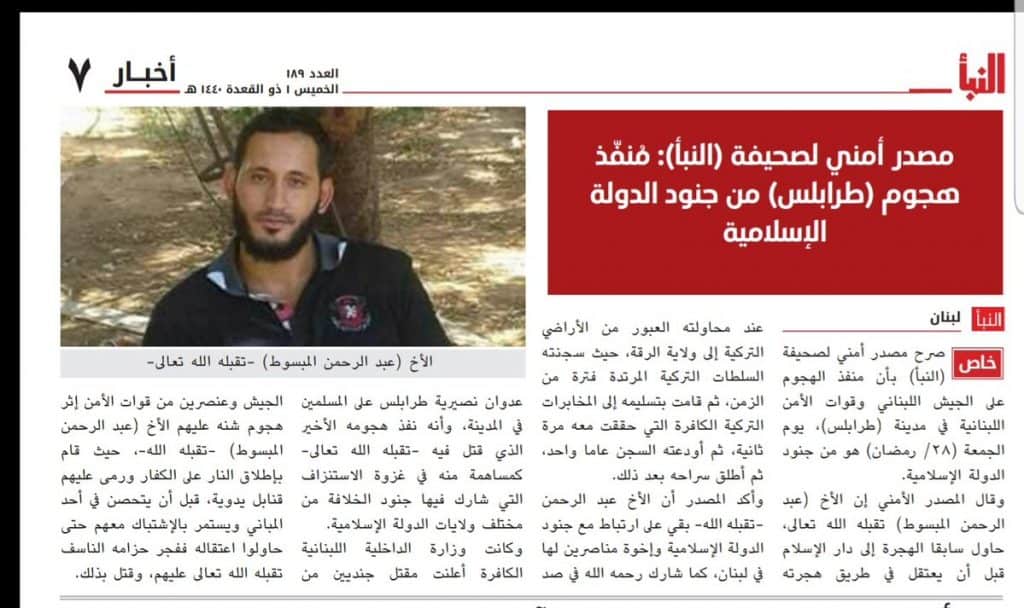
In this week’s issue of the Islamic State’s weekly Al Naba newsletter, the jihadist organization retroactively claimed responsibility for last month’s deadly shootout in Lebanon’s Tripoli.
“According to a security source to Al Naba, the author of Tripoli attack [was] of the soldiers of the Islamic State,” the newsletter stated. It goes on to identify the perpetrator as Abdul Rahman al Mabsut and gives a photo of the jihadist.
No other evidence is given to support its claim that Mabsut was part of the Islamic State, however, Lebanese officials have widely stated he was indeed a member.
Details of Mabsut’s rampage in Tripoli were then given by the newsletter, however, it largely matches with what was previously reported in Lebanese and international media with little new information provided.
On June 4, Mabsut, while riding a motorcycle around the city, initiated a shoot-out with Lebanese security forces after randomly firing at policemen and civilians. Two soldiers were killed when Mabsut fired on a military vehicle, while two police officers were killed while on patrol.
After being cornered by Lebanese security forces, Mabsut then detonated an explosive vest he was wearing. No one was reported hurt in the explosion.
Mabsut had previously fought for the Islamic State in Syria, according to Lebanese officials. He then returned to Lebanon, where he was caught and imprisoned for around a year. After being released, he then returned to Syria before reappearing in Tripoli and executing his attack.
The Islamic State’s Al Naba repeats all of this information, except it reports Mabsut was jailed in Turkey by the Turkish MIT rather than in Lebanon. This version of events has not yet been corroborated in any independent reporting.
It is unclear why it took exactly one month for the jihadist organization to claim the shooting to little fanfare. Last month’s assault would represent one of the worst Islamic State attacks in Lebanon since 2015’s double suicide bombing in Beirut.
It is also the first claimed Islamic State operation in Lebanon since the Lebanese military and Hezbollah launched a joint operation to clear jihadists out of areas near Arsal on the Syrian border in July 2017.
Are you a dedicated reader of FDD's Long War Journal? Has our research benefitted you or your team over the years? Support our independent reporting and analysis today by considering a one-time or monthly donation. Thanks for reading! You can make a tax-deductible donation here.







